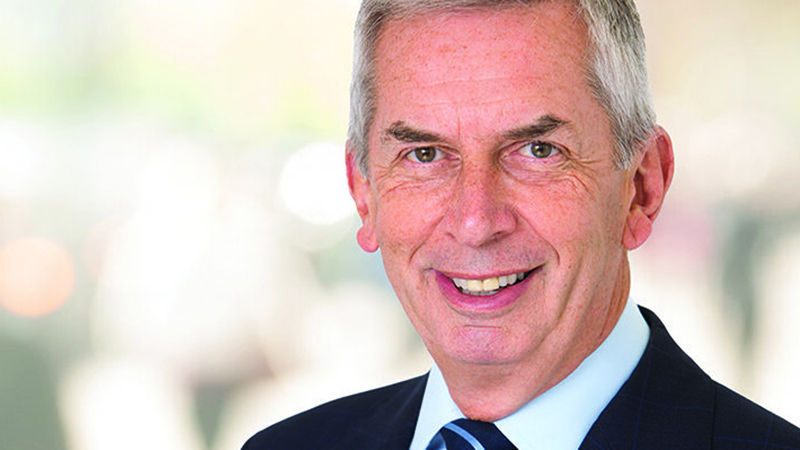Terry Smith, manager of the behemoth £23.4bn Fundsmith Equity fund, sold his position in Amazon earlier this year due to concerns over CEO Andy Jassy’s capital allocation.
In a letter to shareholders published yesterday (10 July), he explained that he only begun investing in the e-commerce giant in July 2021, following a statement from Jassy outlining four principles of investment before buying into other companies. These were to be big and able to produce good returns on capital; to serve a market area in need of serving; and for Amazon to be able to have a differentiated approach to competitors, as well as the competence to execute these plans.
“It is always easier to talk the talk than it is to walk the walk and the CEO’s pronouncement that he wanted Amazon to seek four routes to get bigger in grocery retail ran counter to all these principles,” Smith said.
“In our view grocery retail has none of these characteristics and Amazon has already stubbed its toe in this sector* with the Whole Foods acquisition.”
More generally, Smith noted that there is a “much longer list” of companies ignoring his warnings that they are making capital allocation mistakes, than those who are listening to him.
See also: “Fundsmith Equity retains fund top spot for interactive investor users“
He said he is therefore likely to become “more active in exiting such situations where we disagree with the manner in which our investors’ capital is being allocated”.
“Where companies choose to invest outside a powerful core franchise in which they already have expertise we believe they are likely to destroy value, and especially so where they are entering a sector which already has poor returns,” Smith explained.
He added that this also led to him oust Adobe from the portfolio earlier in the year.
Performance
Over the last six months to the end of June, Fundsmith Equity has returned 8.5% compared to its IA Global sector’s average total return of 6.5%, according to data from FE Fundinfo. While the fund has no specified benchmark, its “most obvious comparator” – the MSCI World index – is up 7.9%. over the same time frame.
Its five biggest positive contributors were Meta Platforms (up 3.1%), Microsoft (2.6%), L’Oréal (1.5%, LVMH (1.1%) and Amadeus (1%). Its biggest detractors were Waters (down 1.2%), Estée Lauder (1.2%), ADP (0.6%), Mettler-Toledo (0.4%) and Philip Morris (0.4%).
“The past six months have seen a slowdown in revenue growth from our technology companies, a resilient performance from our healthcare stocks and continued pressure on the profitability of our consumer businesses,” Smith explained.
“Large technology companies have in a sense become victims of their own success. Their growth over the past decade means that they are now such a large part of the economies in which they operate that they have become inevitably more cyclical.
“At the time of the 2008- 2009 recession, Apple, Microsoft, Alphabet and Meta had combined sales of $125bn. Today, Apple generates three times that number on its own and the combined sales of these four companies are as near as makes no difference $1trn.”
Therefore, the manager said the recent economic slowdown has caused Microsoft’s projected sales growth to halve to 7%, compared to growth of 18% last year. Meanwhile, Meta previously enjoyed sales growth of more than 20%, but is now likely to see an 8% uptick for the year.
He added: “Apple and Alphabet will almost certainly have down years in 2023 but we expect a decent bounce back in 2024.”
Consumer stocks
Elsewhere, Smith said the fund’s consumer stocks are generating “decent top line growth”, but that this is mostly price-led as opposed to because of fundamentals.
“Estée Lauder was unfortunately the exception with sales down 8% in its most recent report, but we saw outstanding performances from LVMH which grew 17%, PepsiCo which grew 14% and L’Oréal which grew 13%,” he explained.
“However rising input costs have put pressure on margins, particularly gross margins or the difference between what it costs a company to make its products and what they can sell them for.”
“Estée Lauder used to make things for $0.20 and sell them for $1.00, now it costs $0.28 to make them. This still leaves our companies’ gross margins way above those of the market average which means their bottom lines are better protected but they cannot completely offset these headwinds.”
‘Tougher conditions’
Overall, Smith said he is “mostly sanguine” about slower revenue growth from companies, given they are operating in difficult conditions at present.
“While we await the outcome of these economic and geopolitical conundrums we will seek to continue to do what we set out to do,” he concluded. “Which is to assemble a portfolio of high-quality companies and hold onto them so that their inherent ability to compound in value will determine how we perform over the long term.”
Since its launch in 2010, Fundsmith Equity has returned 513% compared to its sector average and the MSCI World’s respective returns of 191.2% and 205.3%, according to data from FE fundinfo. It has an ongoing charges figure of 1.04%.
*As a response to Smith’s criticism of Amazon, a spokesperson highlighted the following comments from CEO Andy Jassy, made in Q4 2022: “We think grocery is a really important and strategic area for us. It’s a very large market segment, and there’s a lot of frequency in how consumers shop for grocery.”
He continued: “I think if you want to have a mass physical store offering, you need a different offering, and that’s what we’ve been working on with Amazon Fresh, and we have a few dozen stores so far.
“We’re doing a fair bit of experimentation today in those stores to try to find a format that we think resonates with customers. It’s differentiated in some meaningful fashion and where we like the economics.”










